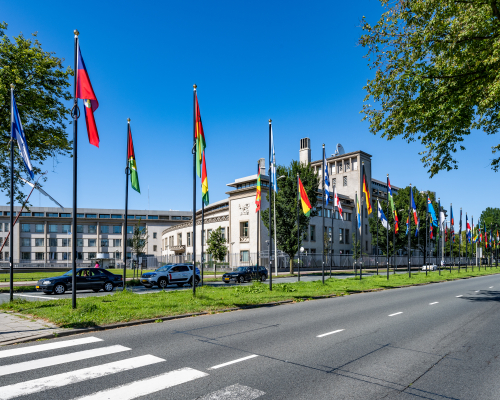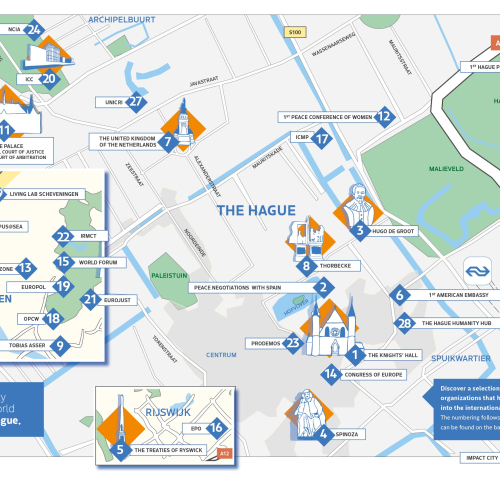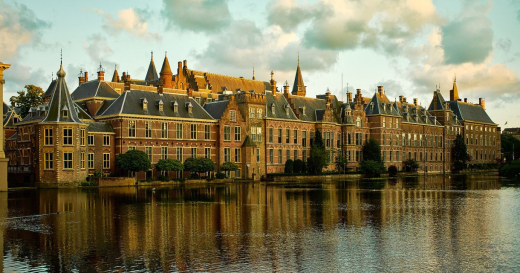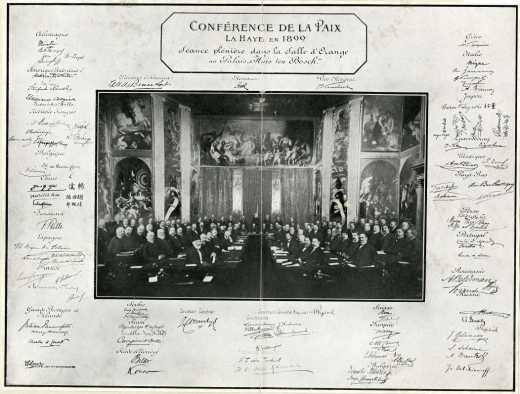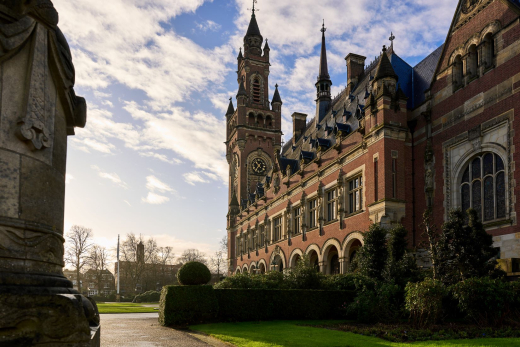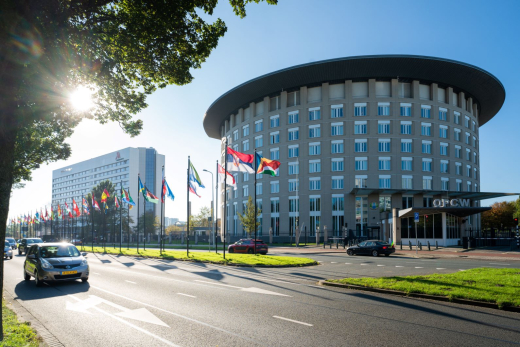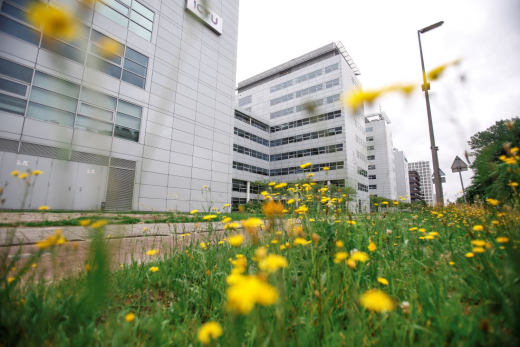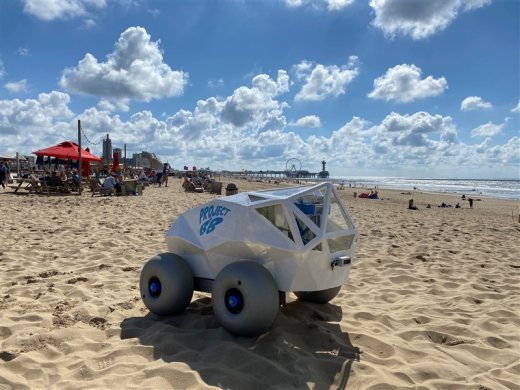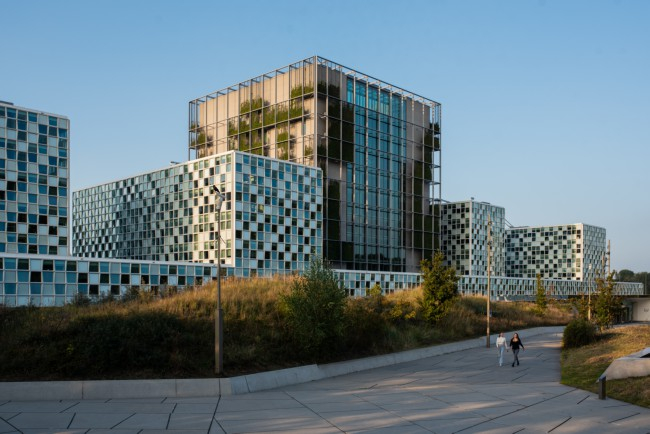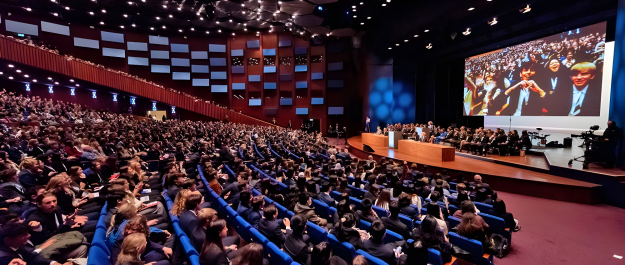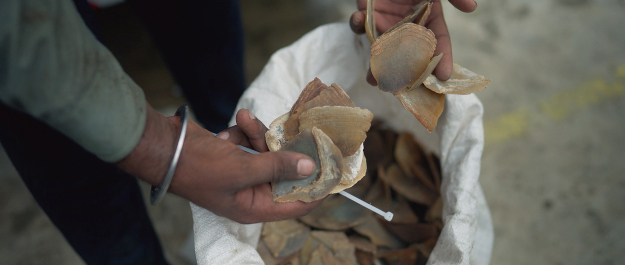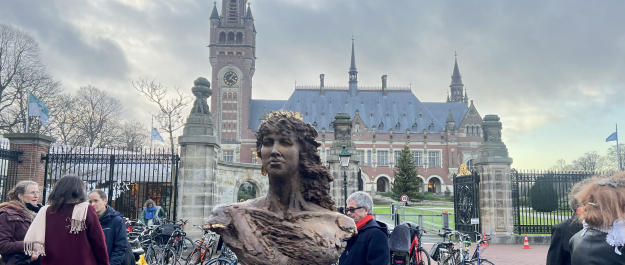This illustration shows 30 key moments in the development of The Hague as the international city of peace and justice. Hundreds of organisations and start-ups are working here to create a safer, more just and sustainable world.
For centuries, The Hague has played a remarkable role on the world stage as a city where nations, thinkers, and organisations come together to seek solutions for a more peaceful and just world. From the signing of historic treaties to the founding of pioneering international institutions, its story is woven through with moments of diplomacy and vision.
1. The Knights' Hall (1230)
Count Floris IV of Holland built a castle in Die Haghe, which would later become The Hague. Count William II began construction of the Knights' Hall and the Binnenhof. In 1585, the States General settled here. It has been the centre of Dutch democracy ever since.
2. Peace negotiations with Spain (1608)
These negotiations led to the Republic of the Seven United Netherlands being recognised. The Trêveszaal at the Binnenhof, completed in 1697, was named after these negotiations (trêves).
3. Hugo de Groot (1625)
Hugo de Groot lived and worked in The Hague for a while. It was here in 1625 that he wrote The Law of War and Peace, an important work in the field of international law.
4. Spinoza (1670–1677)
During his time in The Hague, Spinoza’s work Tractatus Theologico-Politicus was published — a plea for freedom of expression — and he worked on Ethics.
5. The Treaties of Ryswick (1697)
The Huys ter Nieuburch palace once stood on this spot. It was there that the Treaties of Ryswick were signed, bringing the Nine Years' War with France to an end.
6. First American Embassy (1782)
The world's first American embassy was located on the Fluwelen Burgwal. Today, The Hague is home to embassies from all over the world.
7. The United Kingdom of the Netherlands (1815)
The royal family has lived and worked in The Hague ever since the end of the French occupation in 1813. The Netherlands became a constitutional monarchy in 1814. In 1815, Willem Frederik van Oranje-Nassau was crowned King of the United Kingdom of the Netherlands.
8. Thorbecke (1848)
Thorbecke led the committee that amended the constitution in 1848. This limited the king's power and made ministers responsible for policy, forming the basis of our parliamentary democracy.
9. Tobias Asser (1893)
Asser organised the first Hague Conference on Private International Law in 1893. This led to the establishment of the HCCH, the oldest international organisation in The Hague, and earned Asser the Nobel Peace Prize in 1911.
10. First Hague Peace Conference (1899)
Tsar Nicholas II initiated the First Hague Peace Conference. Queen Wilhelmina made the Huis ten Bosch Palace available. Bertha von Suttner played a pivotal role in the lead-up to the conference, for which she received the Nobel Peace Prize in 1905.
11. Peace Palace (1907)
During the Second Hague Peace Conference, the foundation stone was laid for the Peace Palace, which, with the support of philanthropist Andrew Carnegie, was built to house the Permanent Court of Arbitration. Since 1945, it has also been home to the United Nations International Court of Justice. The World Peace Flame, located at the entrance, symbolises hope for a better world.
12. First Women's Peace Conference (1915)
At the site of the former Hague Zoo - now home to the Provinciehuis Zuid-Holland - the first women’s peace conference was held during World War I.
13. International Zone (After 1945)
During the Second World War, this part of The Hague became part of the Atlantic Wall. Houses, bridges and parks were replaced by military barricades and bunkers. After the war, the 'International Zone' was built here.
14. Congress of Europe (1948)
The Congress of Europe took place in the Hall of Knights. This later led to the establishment of the European Movement, the Council of Europe, and the European Convention on Human Rights. In 1986, the Single European Act was signed in The Hague, marking an important step towards the creation of Europe's current internal market.
15. World Forum (1969)
The World Forum is an international convention centre. Host of major events including the International Afghanistan Conference (2009), the Nuclear Security Summit (2014), and the NATO Summit (2025).
16. EPO (1977)
The European Patent Office (EPO) has been officially active in the Netherlands since 1977. The EPO evaluates applications for European patents and grants them on behalf of its member countries.
17. ICMP (1996)
The International Commission on Missing Persons (ICMP) was set up to assist in locating individuals who went missing during conflicts in the former Yugoslavia. It now searches worldwide for people missing as a result of wars, human rights violations and natural disasters.
18. OPCW (1997)
The Organisation for the Prohibition of Chemical Weapons (OPCW) implements the Chemical Weapons Convention with the aim of eliminating chemical weapons worldwide.
19. Europol (1999)
This EU agency supports EU member states in preventing and combating all forms of serious international and organised crime, cybercrime and terrorism.
20. The International Criminal Court (ICC) (2002)
The ICC was established to investigate and prosecute serious crimes, including crimes against humanity, war crimes, and aggression. It is an independent organization operating under the Rome Statute, which was adopted by United Nations member states in 1998.
21. Eurojust (2003)
Eurojust is the European Union's agency for judicial cooperation in combating serious, cross-border organised crime. Since 2023, it has also houses the Register of Damages for Ukraine and the International Centre for the Prosecution of the Crime of Aggression (ICPA).
22. IRMCT (2010)
In 1993, the ICTY was established here — a United Nations court of law that dealt with war crimes committed during the conflicts in the Balkans in the 1990s. Since 2010, the International Residual Mechanism for Criminal Tribunals (IRMCT) has been based here (picture as header).
23. ProDemos (2011)
ProDemos provides information about democracy and the rule of law. Visitors can learn how to influence decision-making processes at local, regional, national and European levels.
24. NCIA (2012)
The NATO Communications and Information Agency (NCIA) is responsible for NATO communications systems and plays a key role in protecting NATO networks from cyber attacks.
25. Security Delta (2012)
Security Delta (HSD) is the Dutch security cluster, comprising over 300 companies, government bodies and knowledge institutions that work together to secure our digitising society.
26. Impact City (2015)
In the Binckhorst, start-ups and scale-ups collaborate within an innovative impact community focused on technology, sustainability, and social innovation.
27. UNICRI (2017)
The United Nations Centre for Artificial Intelligence and Robotics (UNICRI) was established to examine the ethical and legal risks and benefits of AI and robots.
28. The Hague Humanity Hub (2018)
The Hague Humanity Hub was initiated by the municipality of The Hague, supported by Leiden University and the Ministry of Foreign Affairs. Organisations work together at the hub to find solutions for a peaceful and just world, and to organise public dialogues, workshops, and film screenings.
29. Living Lab Scheveningen (2020)
The boulevard serves as a testing ground for innovations in urban safety and liveability. A digital infrastructure has been constructed to test new technologies and sensors, with a strong focus on ethics and privacy.
30. Campus@Sea (2025)
Campus@Sea includes a test site in Scheveningen, an off-shore test site on the North Sea, and the Sailing Innovation Centre. It fosters collaboration on maritime innovations focused on climate change, energy supply, and food safety.
Read more

Europol
Headquartered in The Hague, the Netherlands, Europol’s mission is to support its Member States in preventing and combating all forms of serious international and organised crime, cybercrime and terrorism. Europol also works with many non-EU partner states and international organisations.
International Criminal Court
The Assembly of States Parties is the management oversight and legislative body of the International Criminal Court, and is composed of representatives of the States which have ratified or acceded to the Rome Statue.
